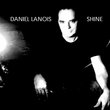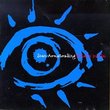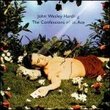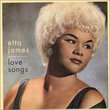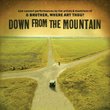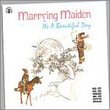| All Artists: Receiving End of Sirens Title: Earth Sings Mi Fa Mi Members Wishing: 0 Total Copies: 0 Label: Triple Crown Original Release Date: 1/1/2007 Re-Release Date: 8/7/2007 Genres: Alternative Rock, Pop, Rock Style: Hardcore & Punk Number of Discs: 1 SwapaCD Credits: 1 UPCs: 646920307227, 646920307265 |
Search - Receiving End of Sirens :: Earth Sings Mi Fa Mi
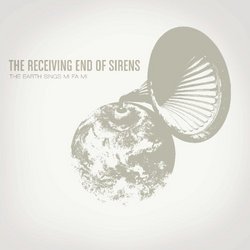 | Receiving End of Sirens Earth Sings Mi Fa Mi Genres: Alternative Rock, Pop, Rock
Their second studio album is their most altruistic, enthralling, and skillful work to date. It's built up of synergetic instrumental measures and intense lyrics that flow brilliantly, transcending one song to the next. ... more » |
Larger Image |
CD DetailsSynopsis
Album Description Their second studio album is their most altruistic, enthralling, and skillful work to date. It's built up of synergetic instrumental measures and intense lyrics that flow brilliantly, transcending one song to the next. Having been well-received on tours alongside Circa Survive, Panic! At The Disco, and 30 Seconds To Mars, with appearances on Taste Of Chaos, the Warped Tour, and MTV's $2 Bill Tour, this band is not your typical flash in the pan. Produced by Matt Squire (Panic! At The Disco, Boys Like Girls). Similarly Requested CDs
|
CD ReviewsABSOLUTELY COMPELLING Anthony R. Pepe | Lancaster, PA United States | 08/07/2007 (5 out of 5 stars) "This is the sophomore album from The Receiving End of Sirens, and it is one of the best albums I've heard in a while. Like Cave In, these guys know how to perfectly balance intensity and ambience, and also incorporate outer space themes into the music. Musically, much of this album is inspired by Johannes Kepler's work on the laws of planetary motion - the opening lead on "Saturnus" is their vision of what the orbits of Saturn's rings would sound like, while two of the more ambient tracks, "A Realization of the Ear" and "Music of the Sphere," continue on the space theme. These guys have improved vocally as well via addition by subtraction: after the departure of vocalist/guitarist Casey prior to recording the album, the band now has only 2 vocalists - bassist Bredan and guitarist Alex - rather than 3, resulting in much more clarity in the vocals. They continue their use of literary allusions on this album as well, with much of the lyrics to several songs inspired by the works of C.S. Lewis (his religious works, not the Chronicles of Narnia). There are several thematic layers to the album, from the sound of planetary motion, to the relationships between earth and mankind, father and son, and more. These guys write some great music, and I hope they stick around for a long time and continue carrying the space-rock banner. For those who are interested, check out www.theearthsingsmifami.com/behindtherecord - there is a 30 second sound clip of each song on the album, along with a little blurb by each band member explaining how they wrote each of the songs." Another album...Another landmark achievement Sean M. Chandler | Kentucky, USA | 08/09/2007 (5 out of 5 stars) "Let's dispense with the formalities. I was a little worried when I heard Casey had left TREOS, especially after hearing his work with the Dear Hunter. He has an exceptional ear for music and a real knack for composition that is unrivaled in this line of work. And, with regard to "The Earth Sings Mi Fa Mi", I would have to say that "Between the Heart & the Synapse" will probably still be more likely to dominate my car's stereo a year or two from now than this effort, but that comes as a small boast when both records may be the ONLY two albums I'm playing a year from now. Both are that good. And Casey's absence is felt on "The Earth Sings Mi Fa Mi" from time to time...but of course there are also numerous moments where you'll forget he ever existed. TREOS' second effort is one of the most experimental albums to hit the Warped Tour scene...maybe ever, revolving around a concept put forward in a book by Johannes Kepler, pertaining to the tonal theory of Mars, Venus, and Earth--that these three heavenly bodies create a musical tone as they move about one another, as if to sing "mi fa mi" (i.e.do re mi fa so la ti do)--and Kepler proposed that this is as if to denote "misery famine misery". I haven't read the book (yet) so that's about where my knowledge of the idea runs out, by hey, that's why Kepler published a book, so read up. Now, the fact that TREOS sought to take this concept and develop an album around it, should tell you what you're dealing with here: A band steeped in genius, striving for the insane, and (thankfully, successfully) generating beauty from the fold. I read a good analysis of the songs online and I might as well quote it here because it does a dynamic job of briefly running through the themes: "Kepler's misery referred to emptiness, and TREOS take up that theme on the opening "Swallow People Whole," further incorporating it into "Obliette (Disappear)" and "Smoke and Mirrors." Kepler's famine, meanwhile, referred not to starvation, but a desire for things. And indeed desire is the subject of "The Crop and the Pest," while lust and craving drive "Saturnus." "The Salesman, the Husband, the Lover" sets the stage for the album's other concept, with its web of disintegrating relationships woven through the set, and is based on a story written by Brendan Brown. This theme reaches a nadir on "The Heir of Empty Breath" as the band pleads to be taken away from the emotional wreckage, with the album closing with the haunting "Pale Blue Dot" (a reference to a Voyager photograph of the Earth) and its repeated refrain, "There's no place like home." (Jo-Ann Green) My favorite songs on the album are "Swallow People Whole", "The Crop and the Pest", "A Realization of the Ear" (gorgeous gorgeous gorgeous), "Stay Small", and "Heir of Empty Breath", but the whole album is wonderful even though a few of the songs aren't very dynamic and the album could have used a little more musical diversity at times, but who can complain. I'm only comparing this album to their first one. It's still heads above the competition. All in all, if you're expecting new songs to instantly rock out to, stick to your guns with "The Rival Cycle", "The Evidence", "Broadcast Quality", etc., but you should still definitely check out "The Earth Sings Mi Fa Mi" because there's still a ton of songs that will become stuck in your head within the week, plenty of beautiful harmonizing and arrangements to tingle your spine, and enough inventive creativity and insightfulness to make you believe there just might be hope for the world." "How will I find my way out of this?" The Expanse | Atlanta, GA | 09/05/2007 (5 out of 5 stars) "There is no way that Mi Fa Mi will receive the same press that the new NIN, Year Zero, has received, but it merits it in every way. Though the focal points are pretty far apart, these two records, in my opinion, are the most relevant records to the state of humanity that I've heard in a long time. With the focus and intensity of this sophomore effort, they have trumped their first record hands down, and those who have heard BTHATS hopefully know that I do not say this flippantly.
TREOS were indeed attempting a universal theme when they tackled a subject like the tonality of our spinning planet. Not only did they achieve that, but they hit such a personal nerve that its difficult to listen without your own heart breaking over the brokenness of the world, and perhaps, your own brokenness as well. You feel the paralysis and helplessness of the central character struggling to come to grips with the toll the earth takes on everything within and everyone surrounding. The music provides an unbelievably well formed landscape for the dark theme. I was a bit surprised at how "Swallow People Whole" starts the album; it's not a rocker as the name suggests, but it's as if the earth is being handspun into motion by the slow mechanical drums and the deliberate guitar foundations toward the end. It is seductive yet more subtle than the equally engaging "The Crop and the Pest," with the signature dueling vocals and an amazing guitar hook not unlike some of Thrice's work from Vheissu. And I don't think you can walk away from "Smoke and Mirrors" without the rousing, climactic chorus stuck in your head. "Pale Blue Dot" serves as the perfectly tragic ending to the album, as it does not seek to undo the wounds of the previous 11 tracks, but simply concedes: "I can live with it, I'll live in it...there's no place like home." Wow. It is truly a beautiful song...and it begs you to take its message personally. It's one of the best purchases you can make this year. Regardless of the year, this record has the potential to be enjoyed by musicians and philosophers alike for a long time to come." |

 Track Listings (12) - Disc #1
Track Listings (12) - Disc #1